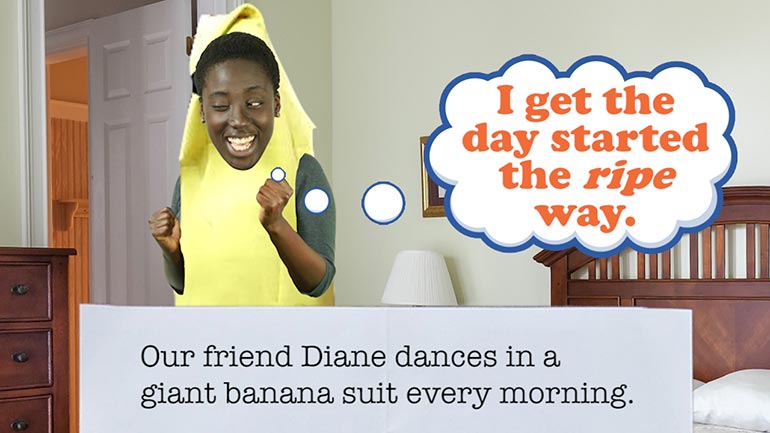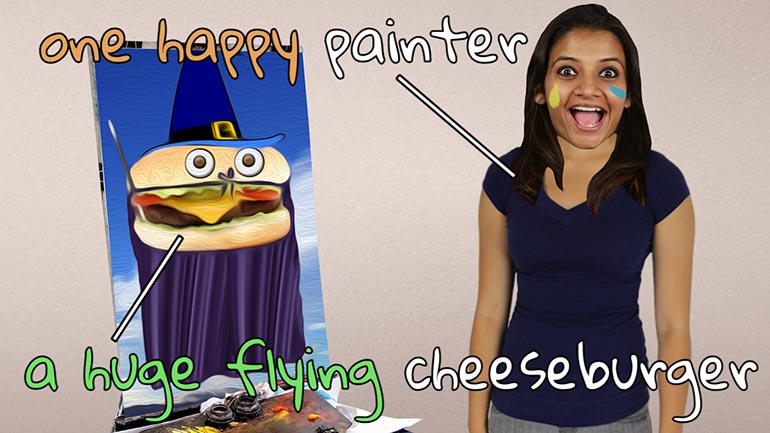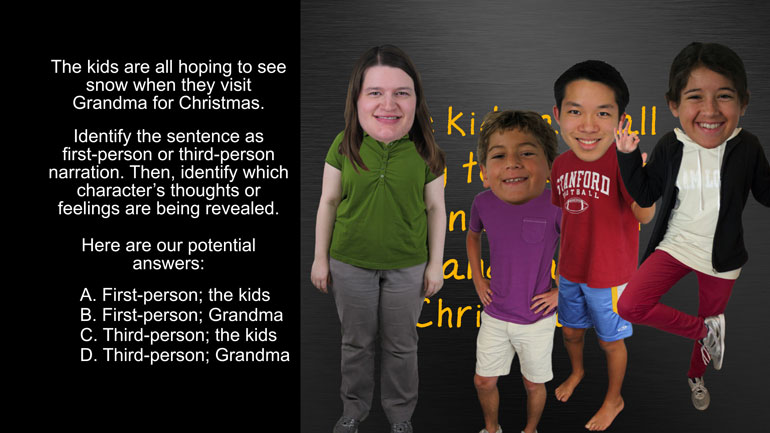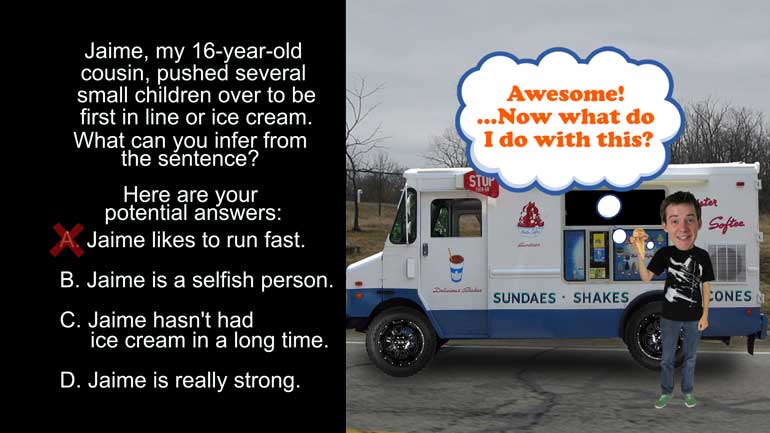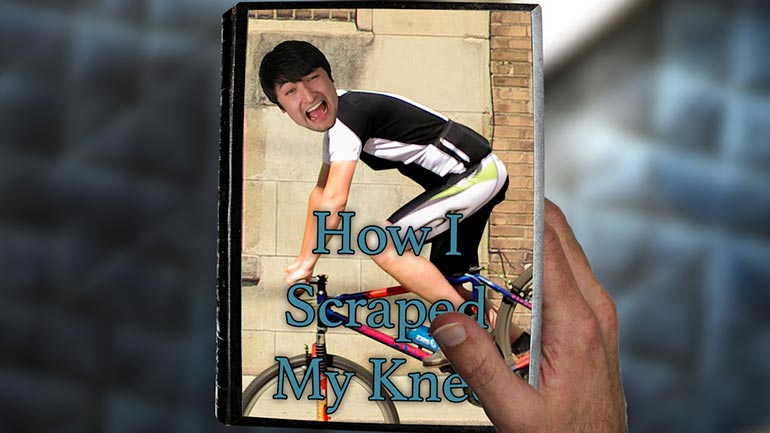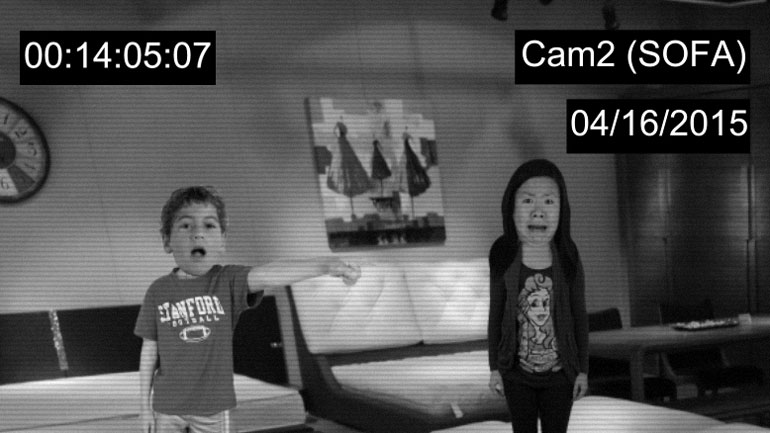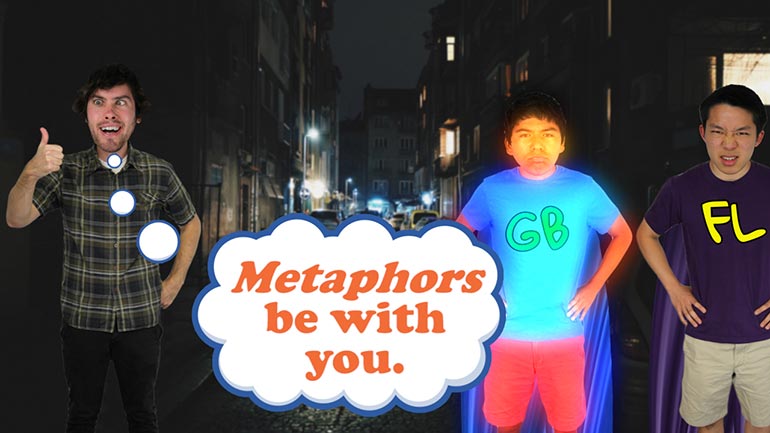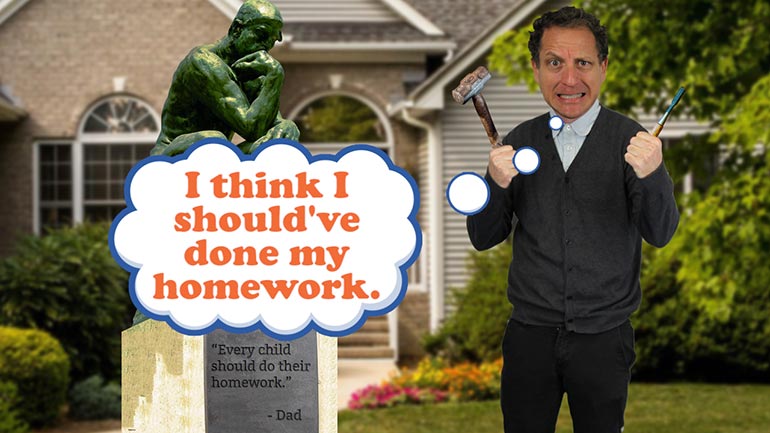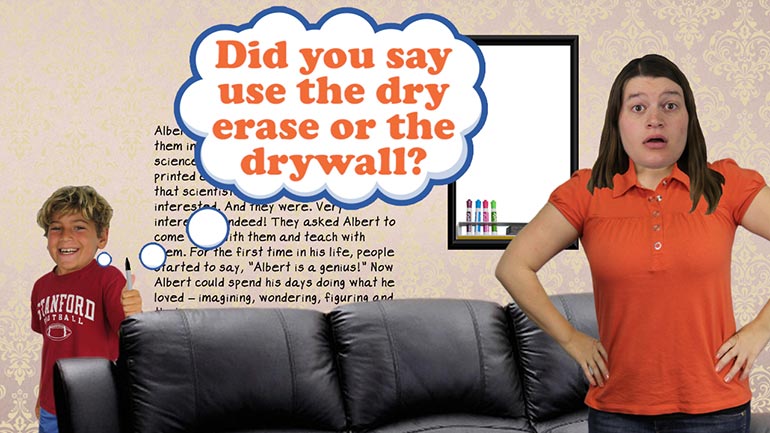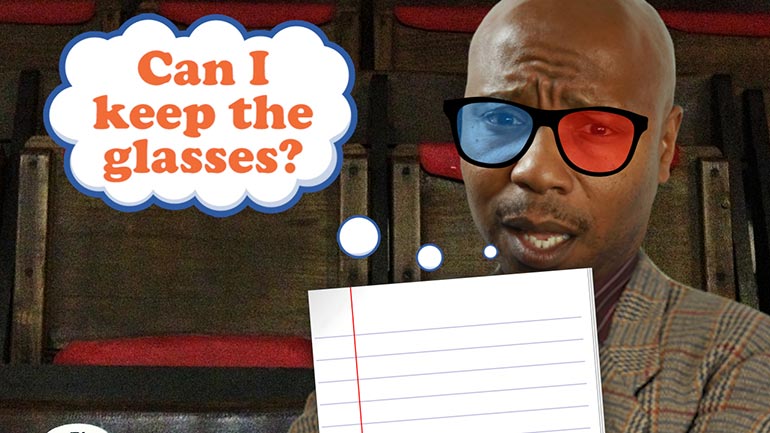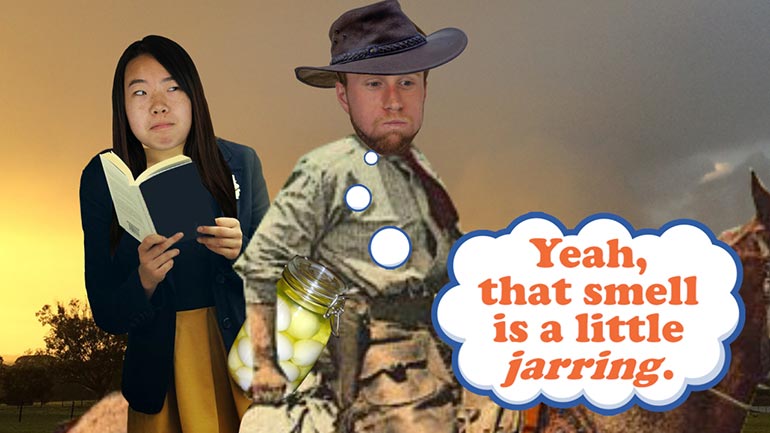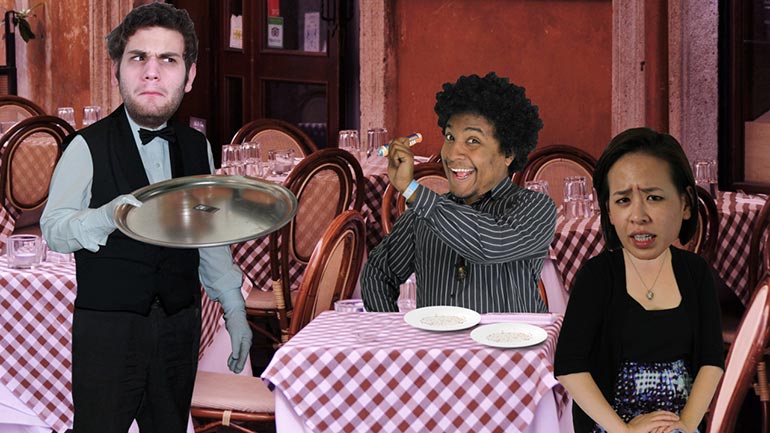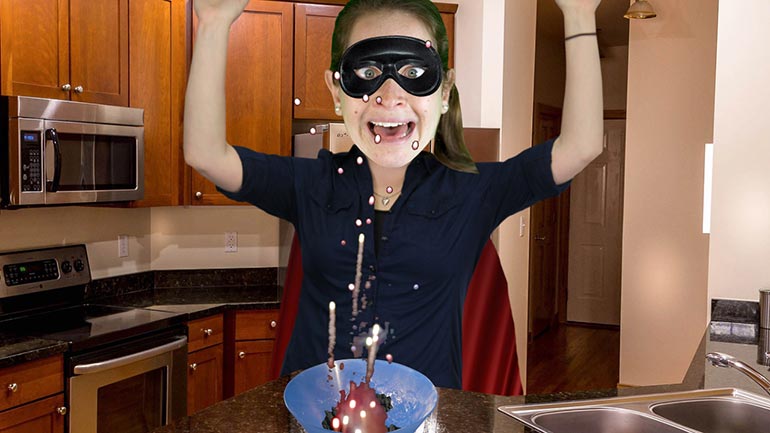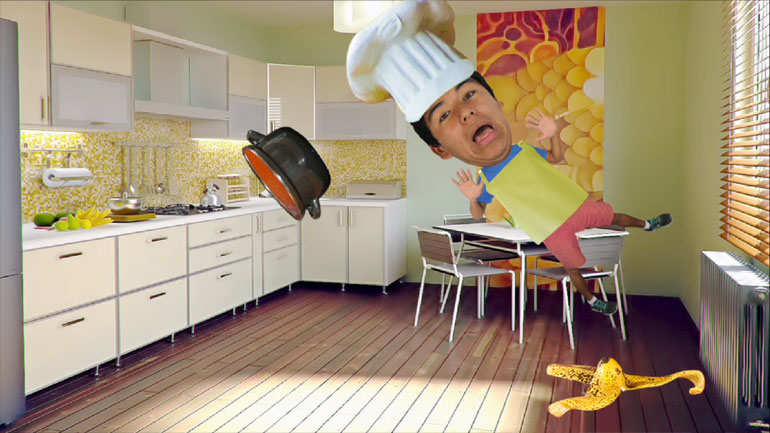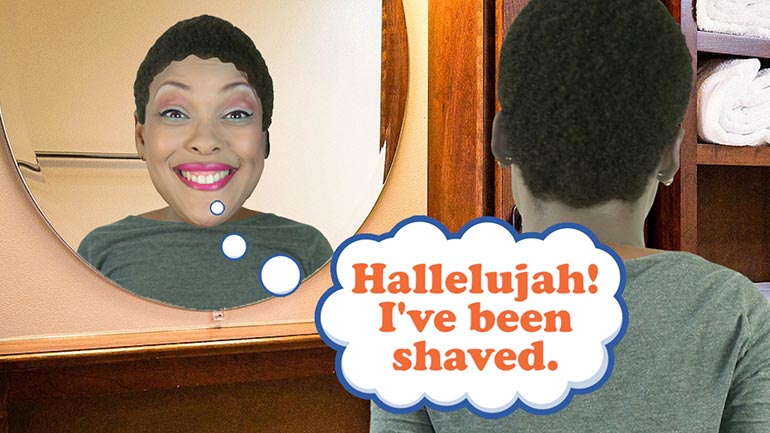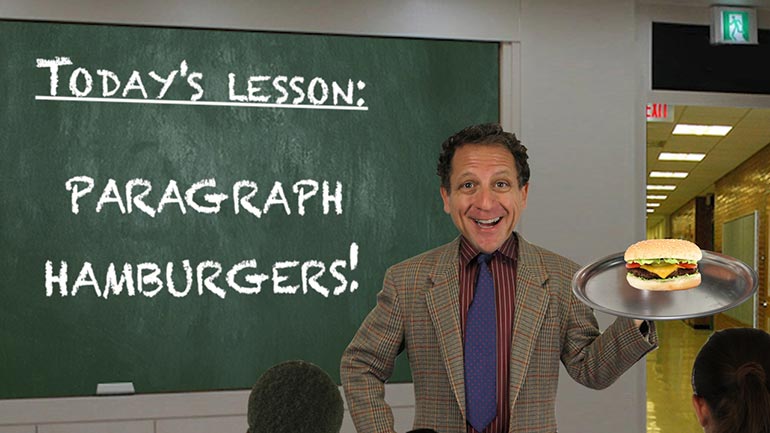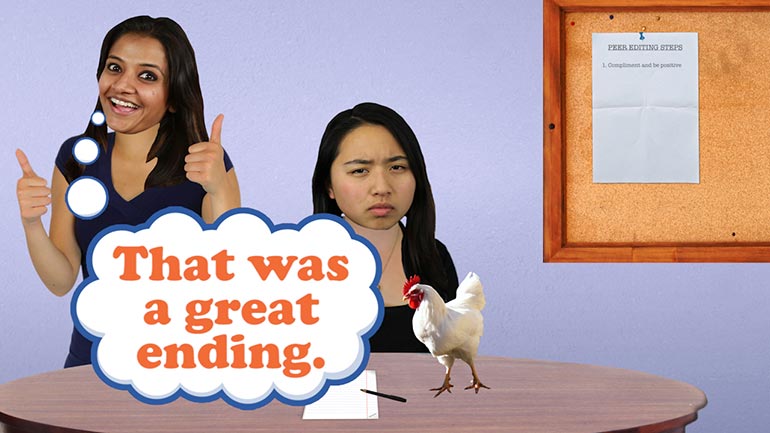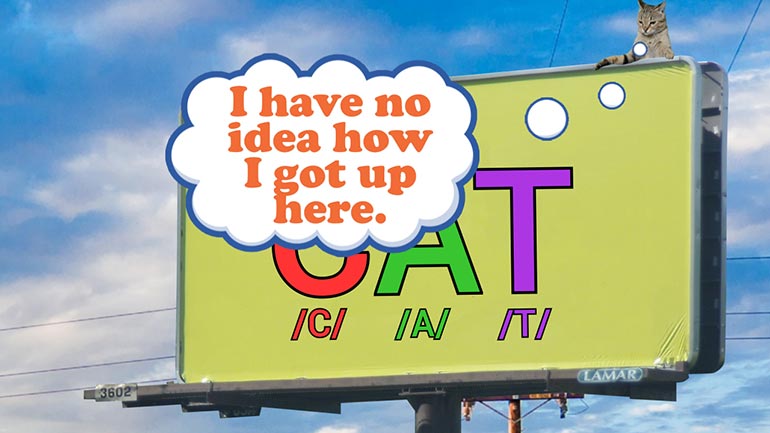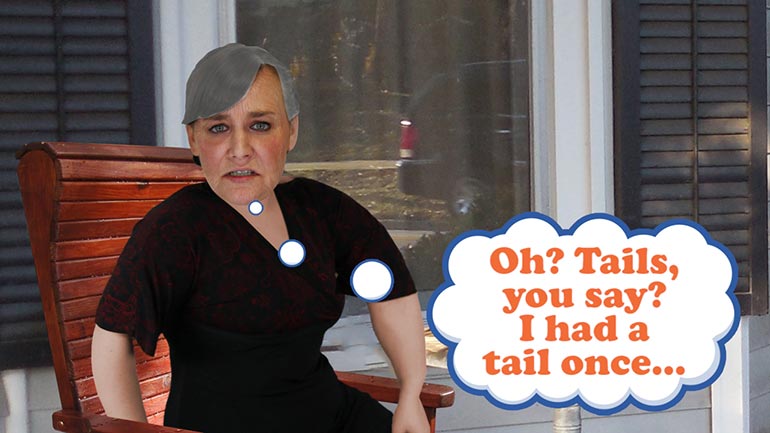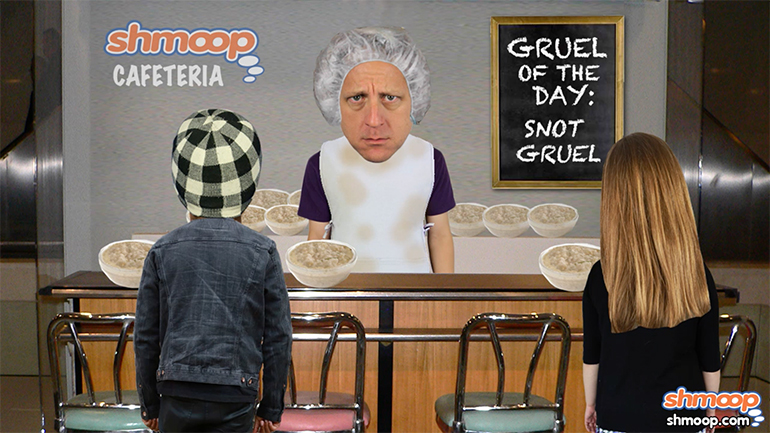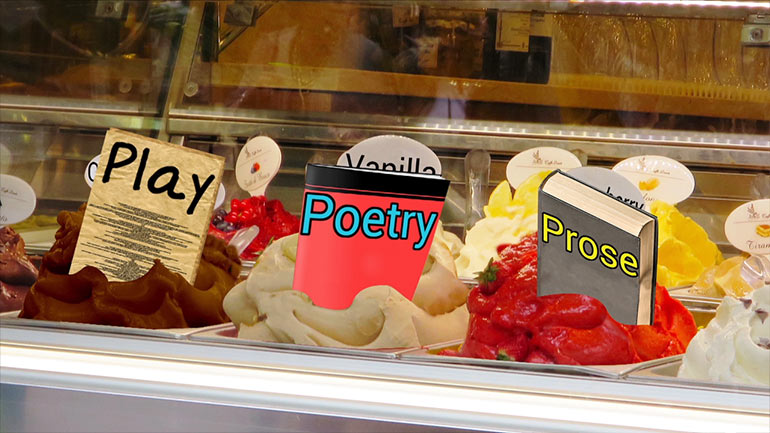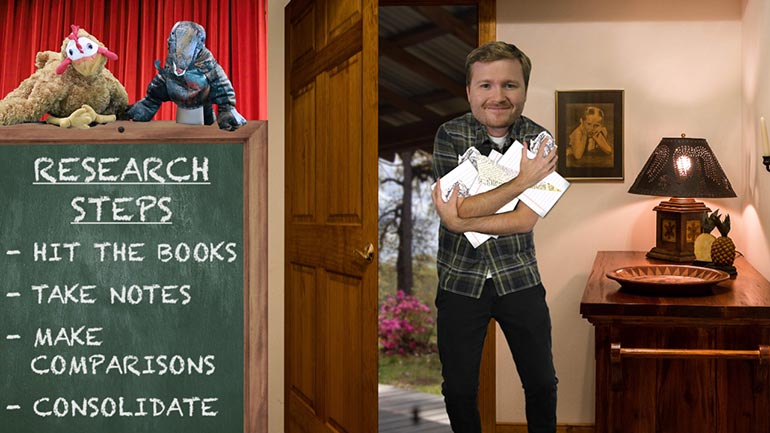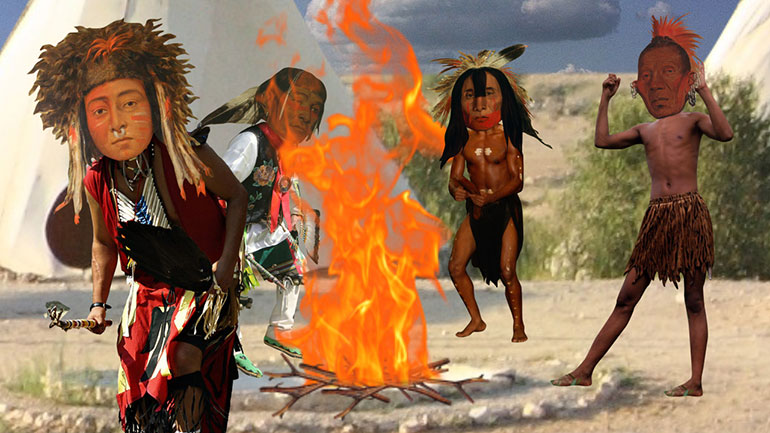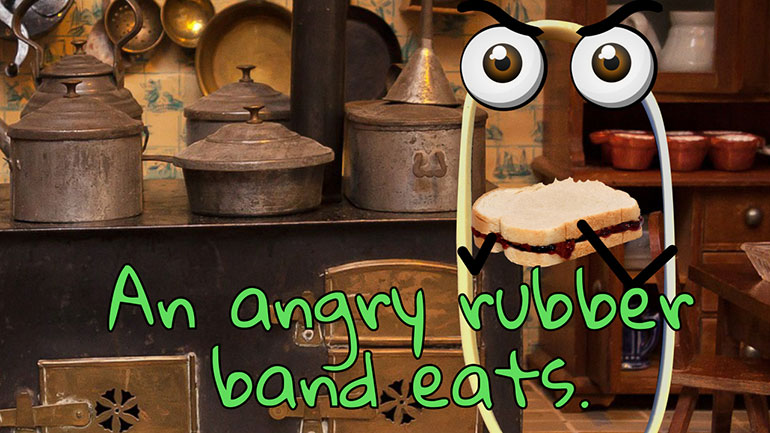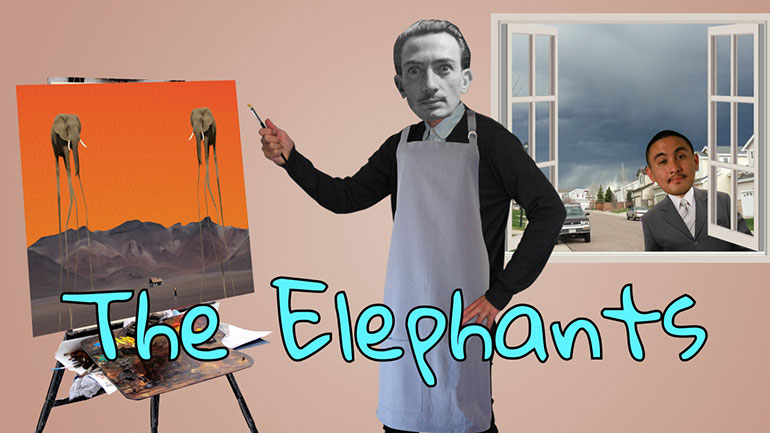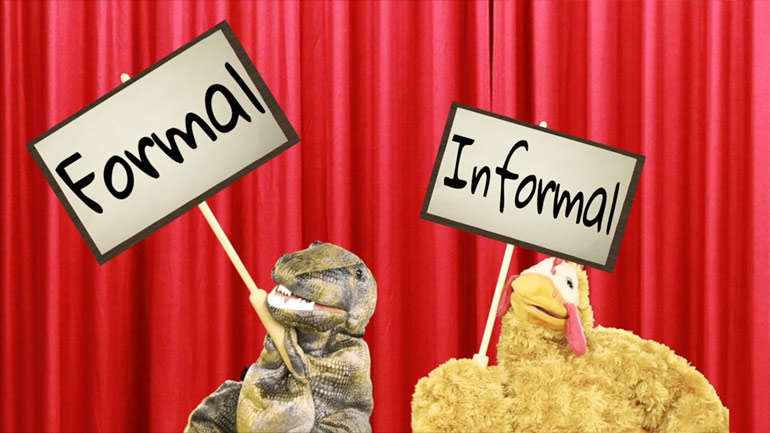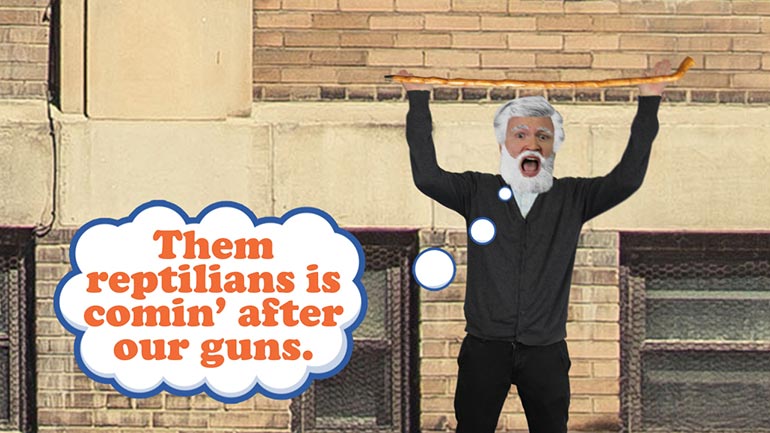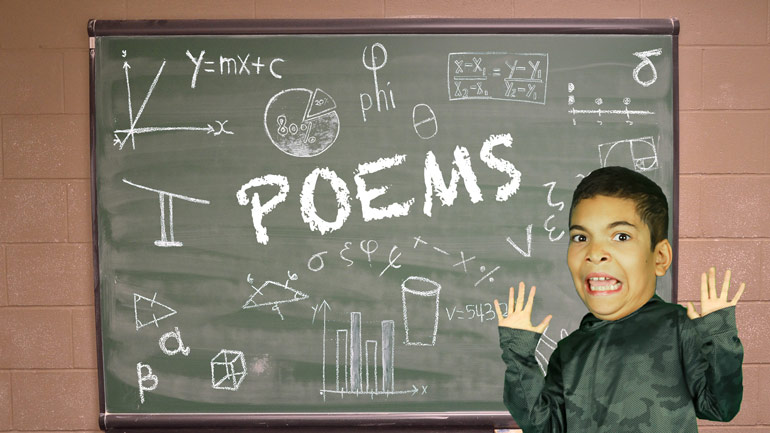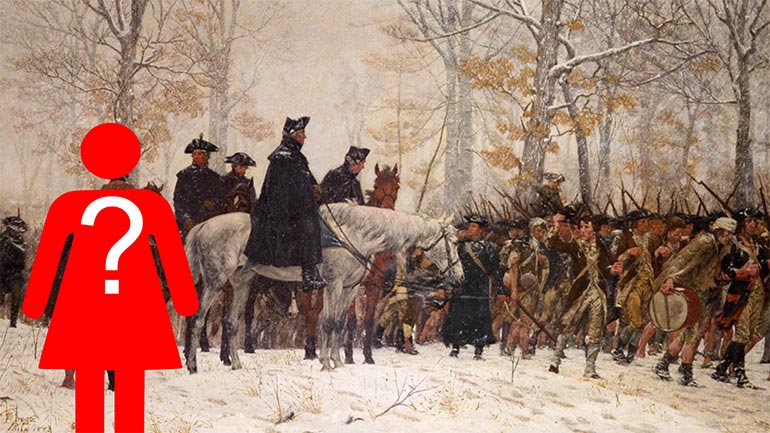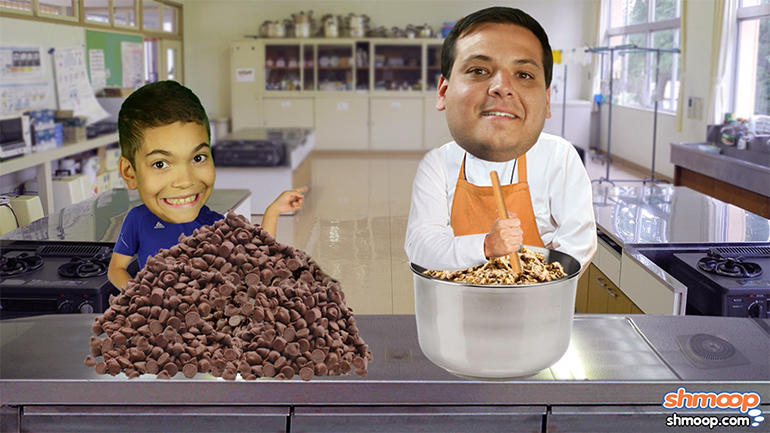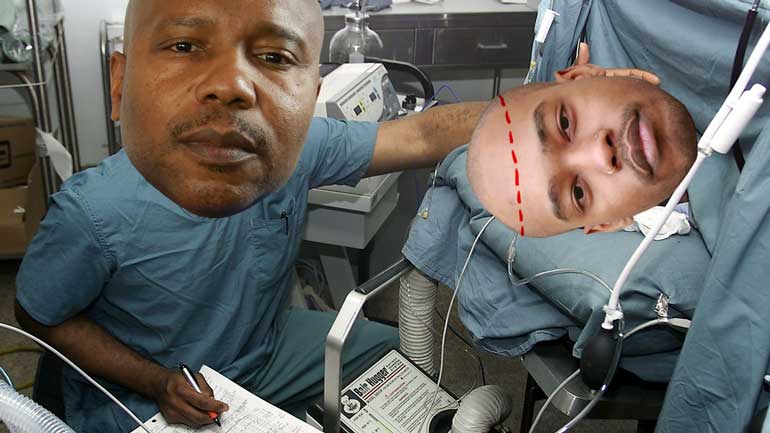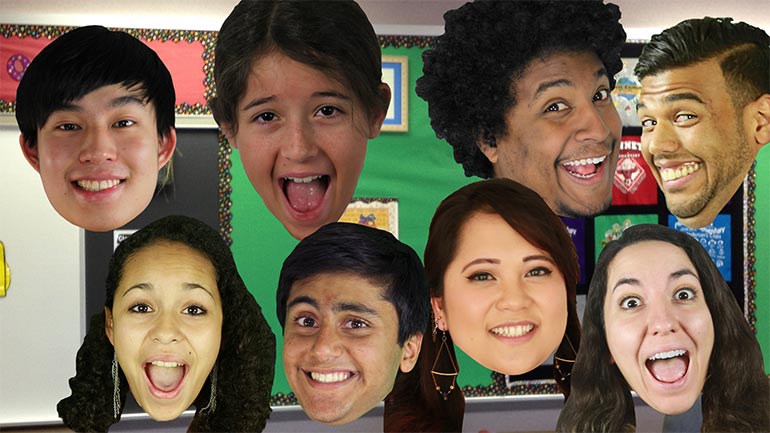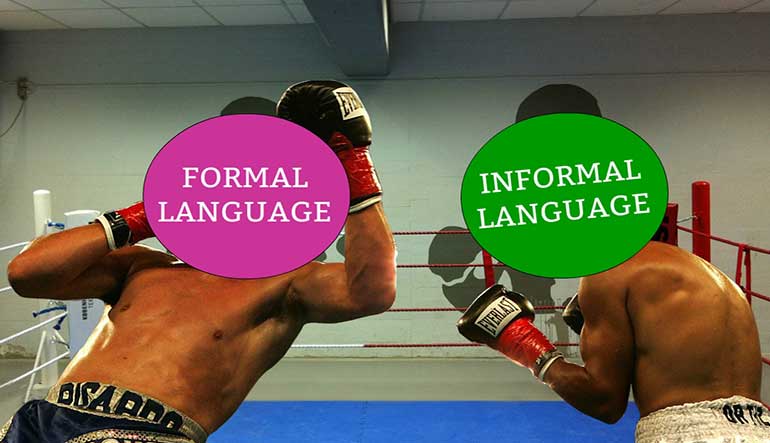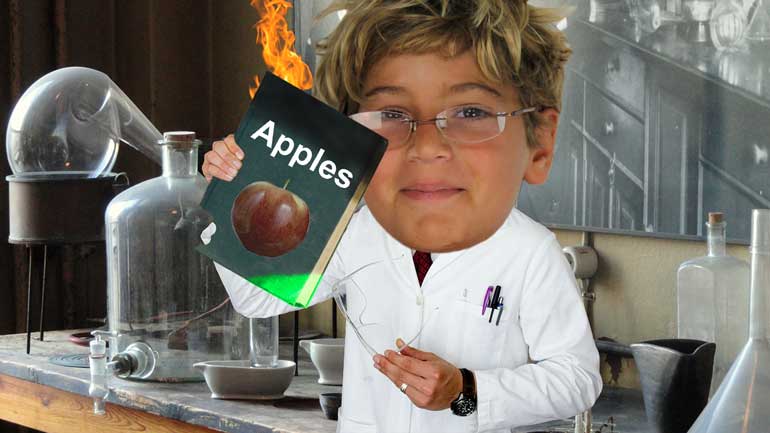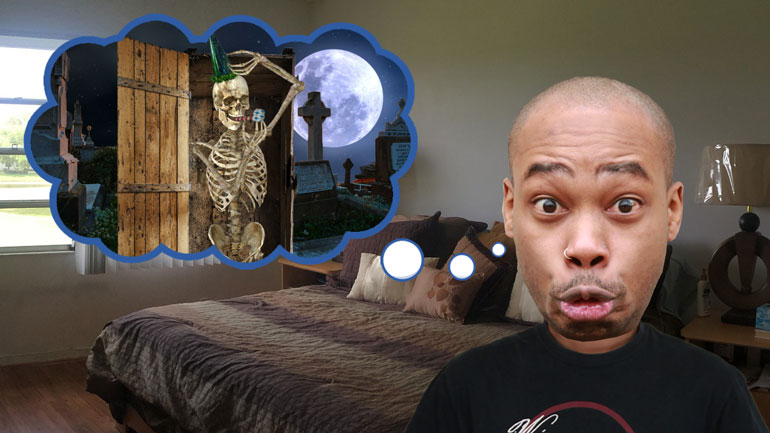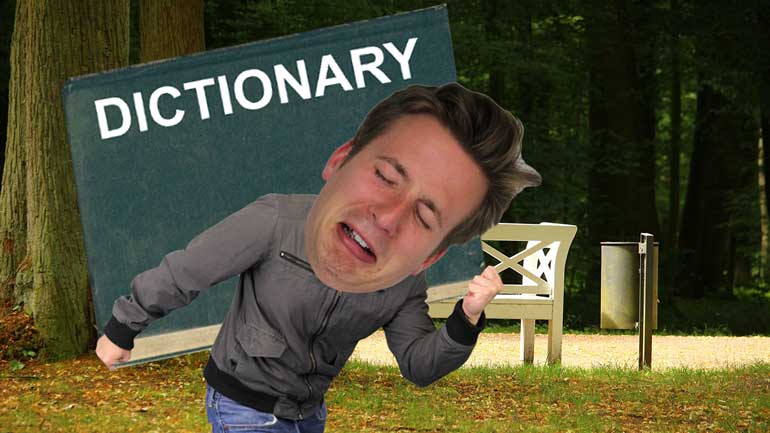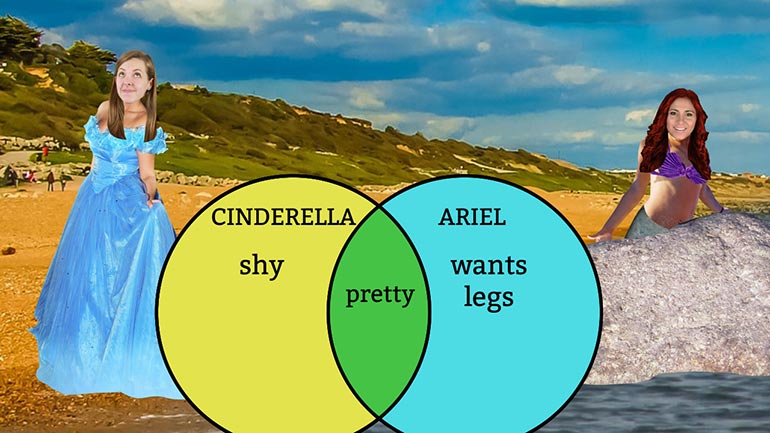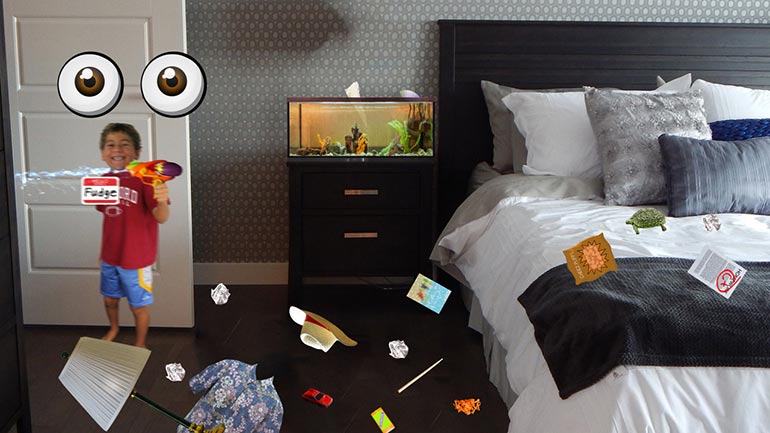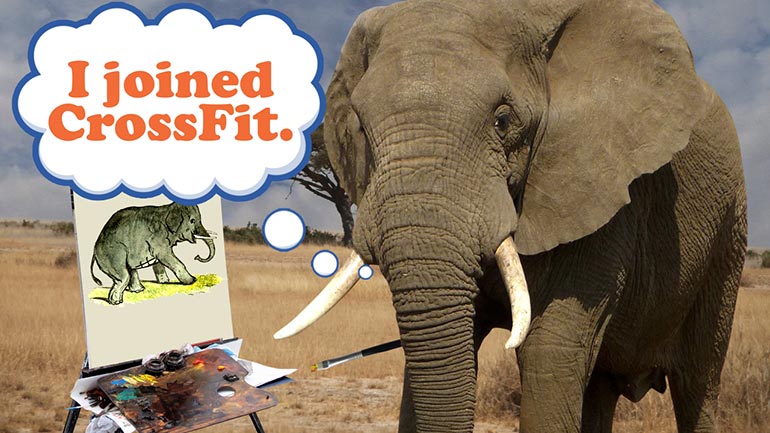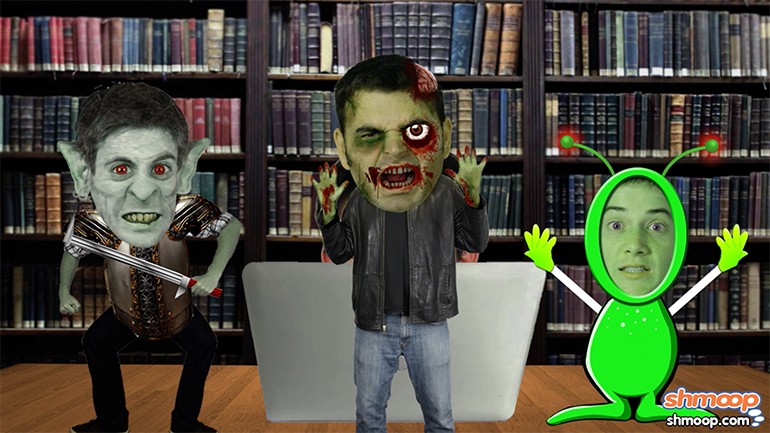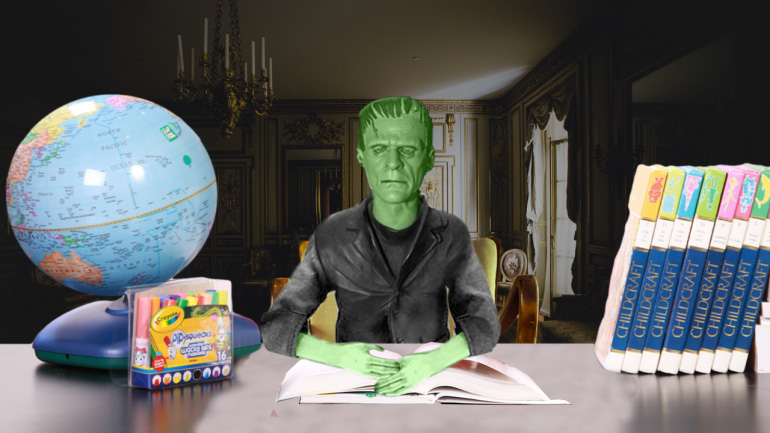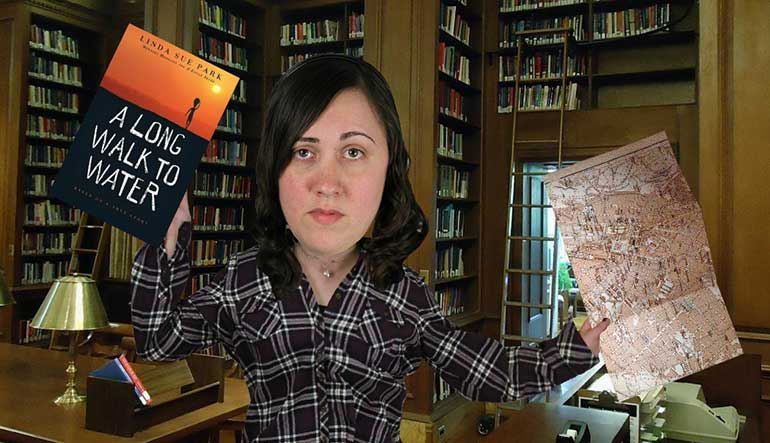ShmoopTube
Where Monty Python meets your 10th grade teacher.
Search Thousands of Shmoop Videos
Language Arts Videos 92 videos
In this lesson we'll subject you to some verbs and predicates. Each one is a necessary part of a complete breakfas—er...sentence.
Choosing words carefully is important. You may end up vexing the assemblage of citizens you're conversing with...or you might even just plain bore...
ELA 4: Analyzing Anecdotes 223 Views
Share It!
Description:
If you came here with a snake bite, you're sorely mistaken. This video is about anecdotes, which are short stories. Unfortunately, they do not cure poison. You should really get that looked at.
Transcript
- 00:04
[Coop and Dino singing]
- 00:13
Stories are a really great way for people to connect to each other. We all love stories [Teacher telling a story to kids]
- 00:18
– listening to them and telling them.
- 00:20
But, well… Okay, sometimes, your grandma’s stories can get a little long. They drag on
- 00:24
and on and you sort of stop listening and start daydreaming about cotton candy. [Girl daydreaming and cotton candy appears on a bed]
Full Transcript
- 00:28
…What? Just us?
- 00:29
Well, what if we told you that there’s a type of story that never does that? A type
- 00:34
of story that’s supposed to be short?
- 00:36
Well, guess what? There totally is. It's called an anecdote, and it's the solution to long-winded
- 00:41
granny stories everywhere. An anecdote is a short, vivid report of an [Coop discussing anecdotes]
- 00:45
amusing or otherwise memorable incident in a real person's life, or even about a fictional
- 00:50
situation.
- 00:51
It isn't so much a story with a beginning, middle, and end as it is just a brief recollection [Book flicking through pages]
- 00:56
of a memory or experience. It has the makings of a story, but it cuts out all the fluff.
- 01:00
Hopefully not the cotton candy though. We love that kind of fluff.
- 01:03
So how do we go about coming up with an anecdote?
- 01:06
Well first, we'd need to make sure we have the Five Ws of the situation all figured out. [W letters dropped into a pot]
- 01:11
That means that for whatever memory or experience the anecdote is about, we need to know the
- 01:15
who, what, where, when and why of it.
- 01:18
Who was involved? What happened? Where did it happen? When did it happen? And why did [Arrow points to the five W's]
- 01:23
it happen?
- 01:24
Just because some people like to tell stories without knowing all the details first *coughGRANNYcough*
- 01:29
doesn’t mean you have to do the same. The next step is to gather the sensory information
- 01:33
regarding the anecdote. Things like smell, touch, taste, and sound are all useful when [Examples of sensory information]
- 01:37
you want to tell an anecdote, because connecting to people's senses allows them to better picture
- 01:42
themselves in the situation. Let's look at an example of an anecdote from [Girl taking a sip of soup]
- 01:45
writer Jerry Spinelli.
- 01:46
“When I was growing up, the first thing I wanted to be was a cowboy. That lasted till
- 01:51
I was about ten. Then I wanted to be a baseball player. Preferably shortstop for the New York
- 01:56
Yankees. I played Little League in junior high and
- 01:58
high school. I only hit two home runs in my career, but I had no equal when it came to
- 02:02
standing at shortstop and chattering to my pitcher: “C'mon, baby, hum the pea.” Unfortunately,
- 02:07
when I stood at the plate, so many peas were hummed past me for strikes that I decided
- 02:11
to let somebody else become shortstop for the Yankees.”
- 02:13
As we can see, this isn't a full story because it doesn't have a real beginning, middle, [Page with beginning, middle and end]
- 02:17
or end. It does, however, recall a memory from Jerry’s childhood, making it a great
- 02:22
example of an anecdote.
- 02:23
So step one – we gather the five Ws of the anecdote.
- 02:26
Who is it about? Jerry Spinelli. What is it about? Jerry playing Little League
- 02:30
Baseball in high school. When does it take place? When he was in high
- 02:34
school. Duh. Where? In his home town, naturally.
- 02:37
And why did what happen actually happen? Well, because he wasn't too great at playing baseball.
- 02:42
Which is okay, because it turns out that he is great at writing.
- 02:45
Then we move on to step two. Do we see any sensory information here? [Sensory information examples]
- 02:49
Sure! He tells us about how he would chirp and yell at the pitcher, which definitely
- 02:53
gives us some insight into what it sounded like out on that field – even if it wasn't
- 02:56
too pleasant. So now you know everything you need to know
- 02:59
about anecdotes.
- 02:59
We don't want to tell you how to live your life, but now may be a perfect time to tell
- 03:03
your grandma what you learned in school today. [
- 03:05
Though we're sure she has some long-winded story about anecdotes, too. Good ol' granny. [Little Red Riding Hood walks to Grandma's room and a wolf is in the bed]
Related Videos
Sticks and stones, right? Well...only sometimes. It's a good idea to make sure your words aren't going to hurt others. Let's look at some ways to d...
Learn to debate like a champ. It's way better than debating like a chimp. That just takes mudslinging to a whole new level.
Today we'll learn about biographies and autobiographies. And no, the second one has nothing to do with the lives of cars.
In this lesson we'll subject you to some verbs and predicates. Each one is a necessary part of a complete breakfas—er...sentence.
Choosing words carefully is important. You may end up vexing the assemblage of citizens you're conversing with...or you might even just plain bore...

